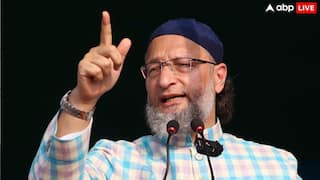Arvind Kejriwal's Judicial Custody Extended Till Sept 25 By Delhi Court
A Delhi court extended judicial custody of Chief Minister Arvind Kejriwal till September 25 in the CBI case in the alleged Liquor policy scam.

A Delhi court on Wednesday extended judicial custody of Chief Minister Arvind Kejriwal till September 25 in the CBI case in the alleged Liquor policy scam.
The Delhi CM has been in custody since March 21 after the Enforcement Directorate (ED) arrested him for alleged irregularities in the now scrapped Delhi Excise Policy. Ths Supreme Court has already granted interim bail to Kejriwal in the ED case. However, he is currently in jail in the CBI case. The AAP chief was arrested by the CBI in a corruption case on June 26.
The CBI has alleged that there is evidence to show that the AAP chief promised Rs 90 lakhs to each candidate of 40 constituencies in Goa elections. And that money allegedly came from the funds illegally amassed from the now scrapped Delhi Liquor Policy.
Today, the Rouse Avenue Court extended the custody till September 25.
The Supreme Court on Thursday reserved judgment in the petitions filed by Arvind Kejriwal challenging his arrest by CBI in Delhi excise policy case and seeking interim bail in the CBI case.
The apex court reserved its verdict after hearing both sides.
Senior Advocate Abhishek Manu Singhvi appearing for CM Kejriwal told the top court that the Delhi High Court did not pass an order on his bail petition despite hearing the case at length.
Singhvi told the apex court that 1st July onwards, the High Court began hearing the case. There were two writ petitions by Kejriwal. One against the legality of CBI arrest, another for bail. On 17th July, the high court reserved judgment on arrest, but bail was re-notified later.
He said that no order was pronounced on bail despite the high court judge hearing the bail on merits.
"After a month, the high court judge said, 'I decide not to decide bail' and asked me to go back to trial court for bail. There are 13 judgments by the Supreme Court that deprecates delay in bail and sends you back. What was the point of sending me back?" Singhvi appearing for Kejriwal questioned the high court order.
However ASG SV Raju appearing for CBI, told the top court that the high court examined the question of concurrent jurisdiction.
Justice Surya Kant while hearing the arguments orally remarked: "Ideally, the High Court should be decisive on this question immediately. The High Court should have passed that order on that very day when notice was issued."
The court further questioned the way CBI arrested Arvind Kejriwal, "When you are in custody...if you are arresting him again, then you need the permission of the court. There is something in the criminal procedure code," the bench remarked.
Singhvi argued that the CBI made an "insurance arrest," as they realised that Kejriwal will soon secure bail in the ED case, which he eventually did. He further pointed out that all the co-accused in the case, Manish Sisodia, Sanjay Singh, Vijay Nair and BRS leader K Kavitha, were granted bail by the Supreme Court.
Related Video
Delhi News: Why Bulldozer Action Was Conducted at Night? DCP Nitin Valson Explains Key Reasons





































